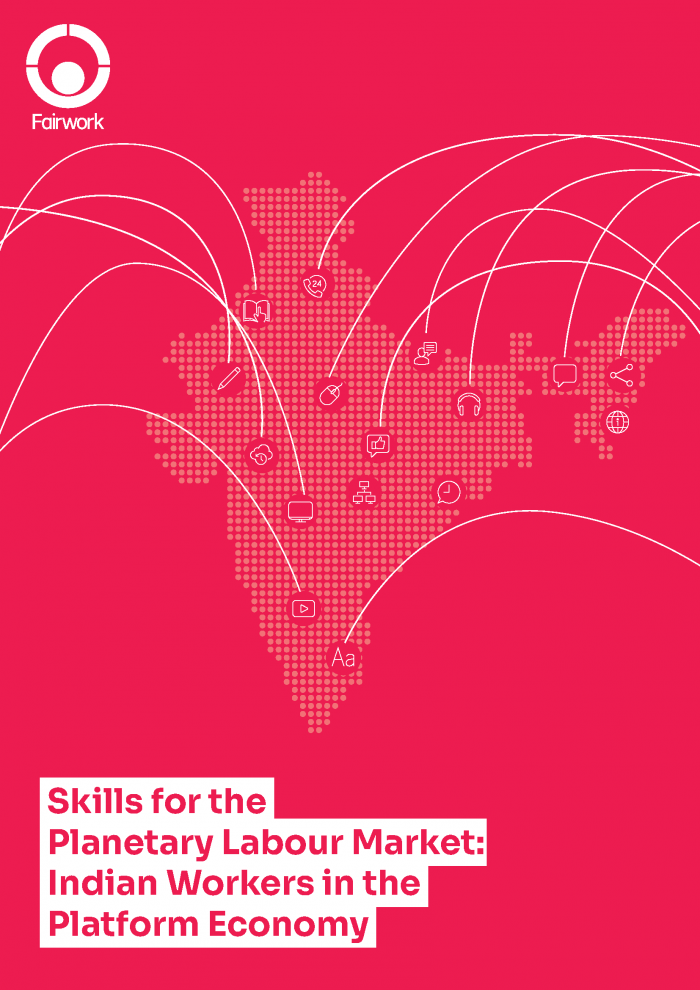This website uses cookies so that we can provide you with the best user experience possible. Cookie information is stored in your browser and performs functions such as recognising you when you return to our website and helping our team to understand which sections of the website you find most interesting and useful.
Skills for the Planetary Labour Market: Indian Workers in the Platform Economy


With 560 million internet users, India is the second largest digital market in the world. People between 20 and 39 years of age represent just over half of the country’s internet users. This means that workers located in India may overcome some of the constraints of their local labour markets by using digital labour platforms to take part in a planetary labour market. So, for many of these young internet users, digital labour platforms provide an essential income and much-needed opportunity to improve their livelihoods. This Fairwork report sheds light on how Indian cloudworkers perceive and expand their skills portfolios in relation to their platform work, and unveils how governmental, private and third-sector skills training approaches need to be adapted to meet their needs. The report additionally traces how the COVID-19 pandemic has impacted Indian cloudworkers and the cloudwork landscape.
This report focuses on five key research questions:
- What are the impacts of the COVID-19 pandemic on Indian cloudworkers and the cloudwork landscape?
- What skills are particularly relevant for cloudworkers in India and how are they acquired?
- What factors support or limit cloudworkers in acquiring the skills they need for their work, and what strategies do they use to overcome obstacles?
- What connections and interactions exist between the platform economy, informal work and skills training?
- What conclusions can be drawn for future skills training approaches, in particular for development cooperation?
The study followed a mixed-methods research approach, involving interviews with technical and vocational education and training (TVET) stakeholders, interviews with Indian platform workers and the administration of a novel survey instrument to over 400 Indian workers across four digital labour platforms (Amazon Mechanical Turk, Upwork, Freelancer, and Truelancer).
A more accessible version is also available for users with screen-readers.
